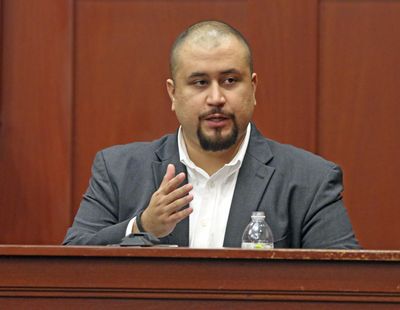Miami judge rules Florida’s new ‘Stand Your Ground’ law is unconstitutional

MIAMI – Florida’s updated “Stand Your Ground” self-defense law is unconstitutional, a Miami judge ruled on Monday.
Miami-Dade Circuit Judge Milton Hirsch ruled that lawmakers overstepped their authority in creating the law this year that forces prosecutors to disprove a defendant’s self-defense claim at a pre-trial hearing.
The judge ruled that under Florida’s constitution, that change should have been crafted by the Florida Supreme Court, not the Legislature.
“As a matter of constitutional separation of powers, that procedure cannot be legislatively modified,” Hirsch wrote in a 14-page order.
The ruling is a victory for prosecutors who have firmly opposed the law they believe makes it easier for defendants to get away with murder and other violent crime.
The law, an update to the already controversial “Stand Your Ground” statute passed over a decade ago, was pushed by the politically powerful National Rifle Association. Gov. Rick Scott signed the new law into effect in last month.
First passed in 2005, Florida’s controversial self-defense law has been criticized for fostering a shoot-first mentality – and giving killers a pass at justice. The law eliminated a citizen’s duty to retreat before using deadly force to counter an apparent threat.
More problematic for prosecutors, the law made it easier for judges – before ever getting to a jury – to dismiss criminal charges if they deem someone acted in self-defense.
The Florida Supreme Court later ruled that defendants, in asking for immunity from criminal prosecution, must be the ones to prove they were acting in self-defense.
In Miami-Dade, judges have thrown several high-profile murder cases after pre-trial immunity hearings, but have also allowed many more to go to a jury.
But the NRA-backed bill, passed in May despite fierce opposition by prosecutors and gun-control advocates, upended the legal framework.
Now, at those pre-trial hearings, prosecutors shoulder the burden of disproving a defendant’s self-defense claim. State Attorneys contended that it essentially forces them to unfairly to try the case twice, making it easier for criminals to skate on violent charges.
Under the law, prosecutors must prove by “clear and convincing” evidence that a defendant was not acting in self-defense.
Hirsch ruled on the case of Liletha Rutherford, who is accused of aggravated assault for pulling a gun on a couple during an argument, and Omar Rodriguez, the so-called “Neighbor from Hell” who shot and killed a man after a confrontation over dog poop.
The separate immunity hearings will still be held in the coming weeks – but it will be up to Rutherford and Rodriguez to prove their self-defense claims.
Hirsch’s ruling likely sets up legal wrangling in the appellate courts, and the Florida Supreme Court.